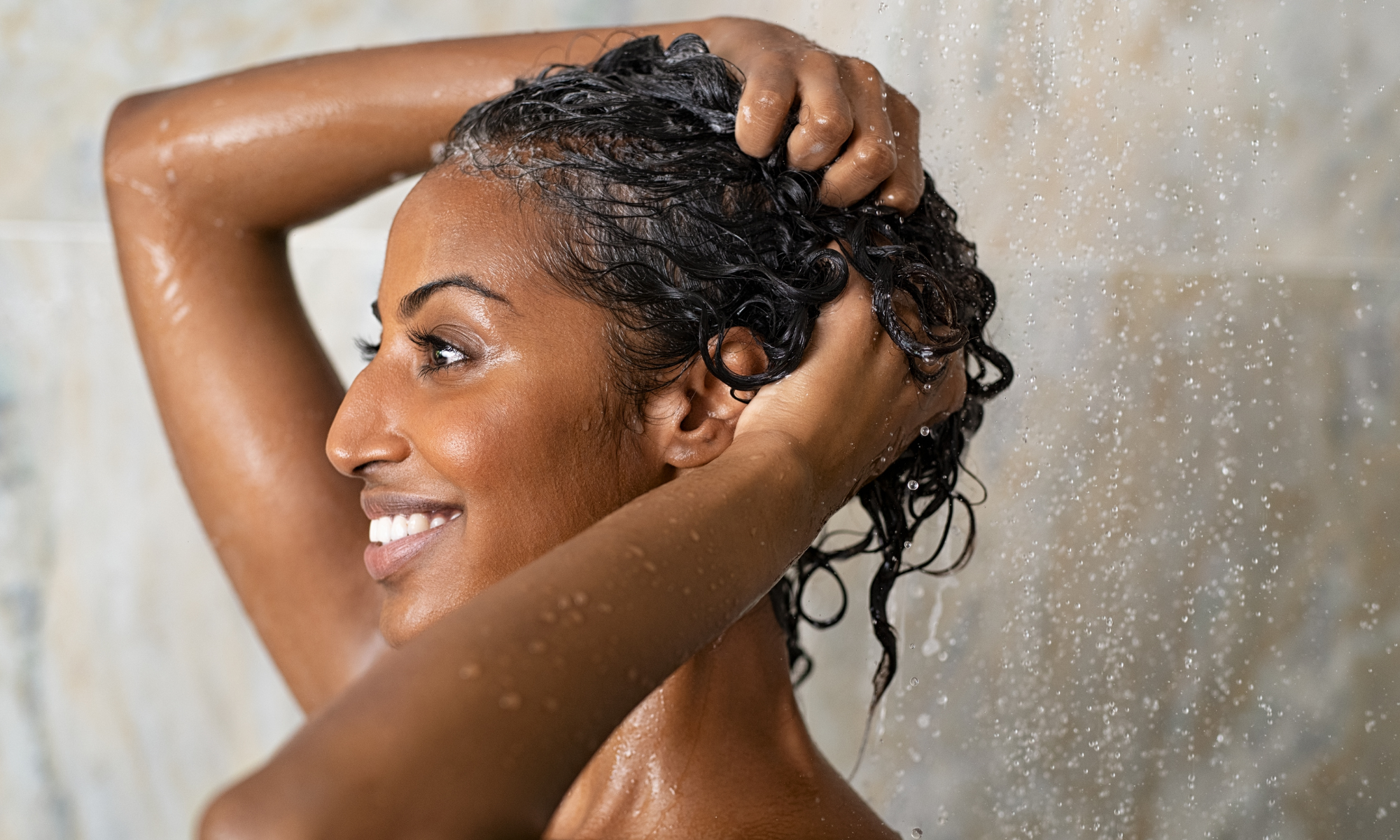
Is it dandruff or is your scalp just dry?
Eek! Itchy scalp AND flakes?! Must be dandruff, right? Maybe, maybe not.
Dry scalp and dandruff can look similar but are caused by different conditions. If you look a lil' closer, you'll discover a few things that set them up apart.
Dandruff vs Dry Scalp
As similar as these conditions may seem, knowing the difference between them will help you understand how to treat your itchy, flaky scalp.

DRY SCALP
A dry scalp is caused by your sebaceous glands being unable to produce enough natural oils to keep the skin on your head moisturized. As a result, the top layer of skin on the scalp dries out and begins to crack and shed into tiny little white flakes. And the itchiness? Well, just like the skin on other parts of the body, once the scalp gets dry it can get irritated and itchy. Another common sign of a dry scalp is dry hair. The lack of sebum not only deprives the scalp of moisture but the hair shaft as well, leaving ends feeling and looking dull and rough.
WHAT CAUSES DRY SCALP?
- Cold, dry climates
- Over-shampooing
- Drying products (hairspray, styling gel, etc.)
- Dehydration

DANDRUFF
Dandruff is caused by a condition called seborrheic dermatitis which causes the scalp to become oily, red, and scaly. Normally, the skin cells on the scalp multiply when you need more of them and then shed off and die but with dandruff, the skin cells multiply and shed faster than usual. The best way to tell if it is dandruff is by the flakes. Due to the oiliness and overgrowth of skin, dandruff flakes are often larger and sometimes yellow.
WHAT CAUSES DANDRUFF?
Most people believe that dandruff is caused by poor hygiene. Although a dirty scalp and hair can certainly aggravate and contribute to the condition, the true culprit is a fungus called Malassezia. It can be found in every head of hair, but some people have more of it than others which is what causes their skin cells to multiply quicker.

How do you treat itchy, dry, flaky, scalp?
If you suspect that you have a dry scalp, be sure to use a gentle and moisturizing shampoo that will not further dry out your scalp and hair. Always be sure to follow that up with a silicone-free conditioner and styling products that help to keep your hair hydrated.
Massaging oil into your scalp is also a great way to prevent it from getting dry and flaky. The LUS (Love Ur Self) Elixir Oil contains Jojoba Oil (plus 7 other amazing ingredients) which simulates the texture and consistency of the natural oil your scalp produces, making it less likely to build up on your skin/scalp and clog your pores and hair follicles.

✨ Apple Cider Vinegar Rinse ✨
This clarifying recipe is ideal for treating both dry scalp and dandruff. Apple Cider Vinegar is antimicrobial and has antifungal properties which means it can help fight off the dandruff-causing fungus, Malassezia.
It’s also anti-inflammatory and can help exfoliate your scalp, ridding it of flakes and irritation, giving you a fresh clean slate to work with.
Check out this vid from our team to see how it's done!
You can also treat dandruff with over-the-counter shampoos. Dandruff shampoos contain medical ingredients that kill the fungus on your scalp and remove flaky skin. Admittedly, these shampoos can be very drying for your hair, but as the condition of your scalp improves you can always reduce how often you use it in exchange for your preferred shampoo.
Unfortunately, there is no real prevention or cure for dandruff. Many people have to manage their symptoms on an ongoing basis. If home and over-the-counter remedies aren’t helping to relieve dandruff symptoms, then it’s probably time to see your doctor who can help assess and prescribe the best treatment for you.

Brush it off
All puns aside, flaky hair can happen to anyone—it’s not always in your control. We understand it can be embarrassing, but we hope by learning about it, you can see that it’s not anything that you’re doing wrong with your hair. Thankfully, both dandruff and dry scalp are usually manageable and we’re happy to help you along the way!






